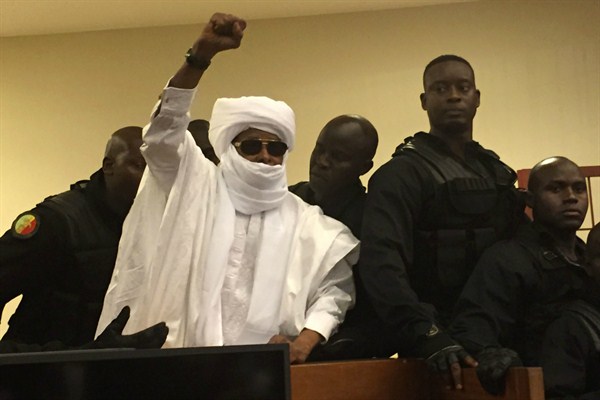The conviction last week of Chad’s former president, Hissene Habre, for crimes against humanity, war crimes and torture is a significant victory for the civil society campaign that has fought tirelessly for more than 20 years to bring him to justice. In a Senegalese courtroom last Monday, Habre was sentenced to life in prison for his ultimate responsibility, as Chad’s head of state from 1982 to 1990, for thousands of cases of torture in secret prisons, along with killings, rapes and waves of repression against communities that opposed his rule.
Delivering his verdict, the head of the specially created Extraordinary African Chambers (EAC) in Dakar, judge Gustave Gberdao Kam, said that Habre “had control over most of the security apparatus,” as well as the army, and had “created and maintained a climate of total impunity.” Habre’s obvious contempt for the EAC—he decided to remain silent throughout the trial and refused to take off his turban and dark glasses or to speak to a court-appointed defense team—were held against him in the decision on sentencing.
Civil society has been at the forefront of this trial. “Never before at the international level had victims’ voices been so dominant,” argued French journalist Thierry Cruvellier. Chadian victims were represented by Chadian lawyers, including the formidable Jacqueline Moudeina and Delphine Djiraibe. Human rights advocates Souleymane Guengueng and Clement Abaifouta, who through their work in collecting evidence from victims of abuses in Chad during the 1980s helped to build the prosecution case, sat close behind the victims throughout the four months that the court was in session. Guengueng, Abaifouta and other activists, some of them victims of torture themselves under Habre, found the determination to carry on with their quest for justice in the face of almost universal pessimism that they would succeed.

